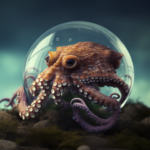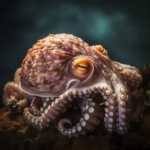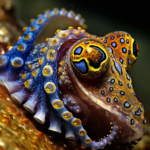Octopuses are fascinating creatures that possess incredible intelligence and problem-solving abilities. Training an octopus may seem like a daunting task, but with the right approach and understanding of their behavior, it is indeed possible. In this article, we will explore the techniques and methods used to train these cephalopods, highlighting the importance of positive reinforcement and the unique challenges that come with working with such intelligent and adaptable creatures. Whether you are a researcher, an aquarium enthusiast, or simply curious about the world of octopuses, this guide will provide you with valuable insights into the art of training these remarkable creatures. So, let’s dive in and discover the secrets of training an octopus!
Key Takeaways
- Octopuses are highly intelligent creatures that can be trained using positive reinforcement techniques.
- Training an octopus requires patience, consistency, and a deep understanding of their natural behaviors and instincts.
- Using food rewards and interactive toys can be effective in motivating and engaging octopuses during training sessions.
- Octopuses can learn a variety of tasks and behaviors, such as opening jars, solving puzzles, and navigating mazes.
- Training an octopus can provide mental stimulation and enrichment, promoting their overall well-being in captivity.
Can You Train an Octopus: Debunking Myths and Understanding Facts
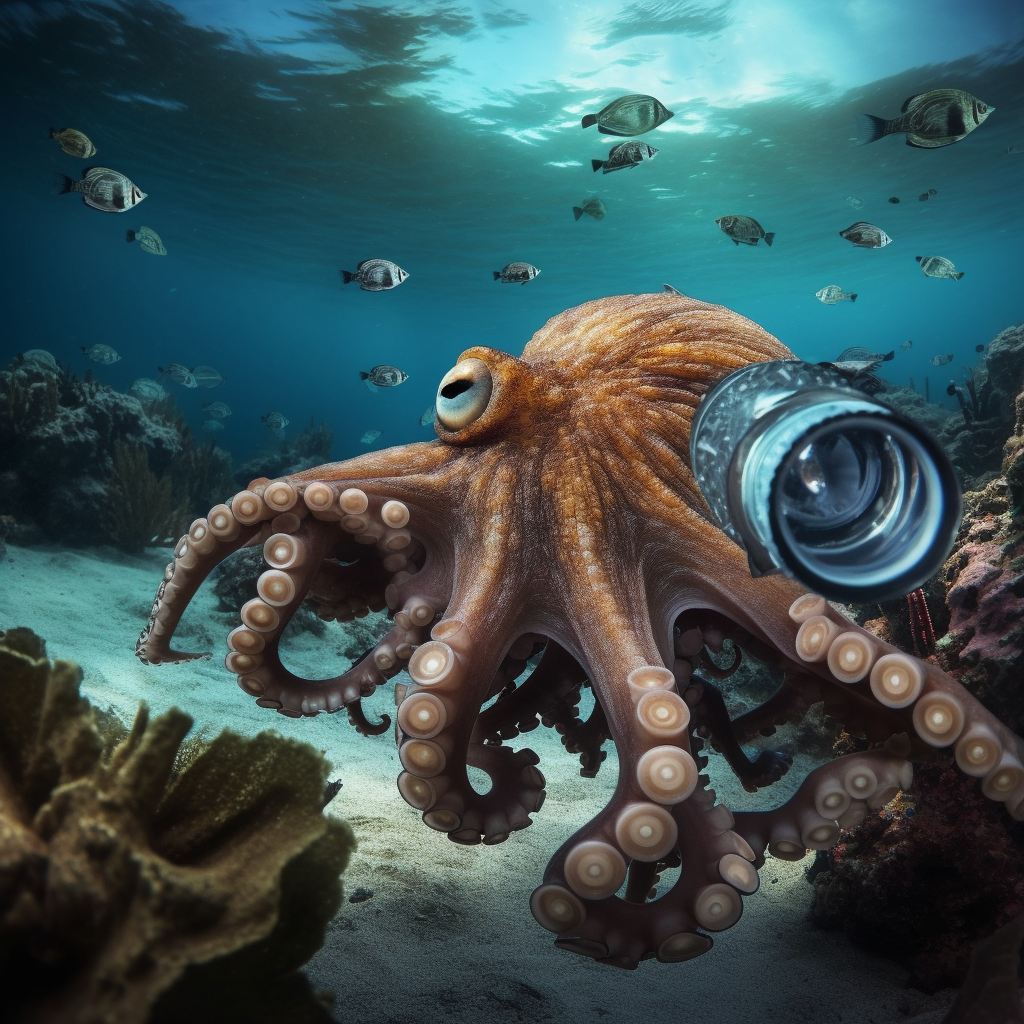
A. Understanding the Octopus: Intelligence and Learning Capacity
Octopuses are fascinating creatures that inhabit the depths of the ocean. With their unique appearance and remarkable abilities, they have captured the curiosity of scientists and the general public alike. One of the most intriguing aspects of octopuses is their intelligence and learning capacity.
Contrary to popular belief, octopuses are highly intelligent creatures. They have complex nervous systems and large brains relative to their body size. In fact, they are considered to be one of the most intelligent invertebrates in the animal kingdom. Their intelligence is evident in their ability to solve problems, learn from experience, and exhibit a wide range of behaviors.
Octopuses have a remarkable ability to learn and adapt to their environment. They are capable of recognizing and remembering objects, as well as learning from observation. This learning capacity allows them to navigate their surroundings, find food, and even interact with other animals.
B. Debunking Myths: Can Octopuses Really Be Trained?
There is a common misconception that octopuses cannot be trained due to their complex nature and independent behavior. However, this is far from the truth. While training an octopus may require patience and a deep understanding of their behavior, it is indeed possible to train them.
Training an octopus involves a combination of positive reinforcement, environmental enrichment, and consistent interaction. By using rewards such as food or playtime, trainers can reinforce desired behaviors and encourage the octopus to learn new tasks. This process is similar to training other animals, such as dogs or dolphins.
One of the key factors in training an octopus is providing them with a stimulating environment. Octopuses are highly curious creatures, and they thrive in environments that offer mental and physical stimulation. By providing them with toys, puzzles, and other enrichment activities, trainers can keep the octopus engaged and motivated to learn.
It is important to note that training an octopus requires a deep understanding of their natural behaviors and instincts. Trainers must respect the octopus’s individuality and work within their comfort zone. Each octopus is unique, and their training program should be tailored to their specific needs and abilities.
In conclusion, while training an octopus may present some challenges, it is indeed possible to train them. With patience, understanding, and the right approach, octopuses can learn new tasks and behaviors. By debunking the myths surrounding octopus training and embracing their intelligence and learning capacity, we can further our understanding of these incredible creatures and foster a deeper connection with the marine world.
The Basics: How to Train Your Octopus
A. The Importance of Habituation: Getting Your Octopus Used to You
When it comes to training your octopus, one of the first steps is to establish a bond and build trust with your cephalopod companion. This process is known as habituation. By getting your octopus used to your presence and creating a positive association, you can lay the foundation for successful training sessions.
Octopuses are highly intelligent creatures with complex behaviors, and they possess a remarkable ability to learn and adapt. However, they are also naturally cautious and can be easily startled. Therefore, it’s crucial to approach the habituation process with patience and care.
To begin, it’s important to create a calm and comfortable environment for your octopus. Ensure that the water parameters in the aquarium are suitable for its species, and provide plenty of hiding spots and enrichment activities to keep it stimulated. This will help your octopus feel secure and reduce stress during the training process.
When interacting with your octopus, start by simply observing it from a distance. Avoid making sudden movements or loud noises that could startle it. Over time, gradually increase your proximity to the tank, allowing the octopus to become familiar with your presence. You can also try placing your hand near the tank and allowing the octopus to approach and investigate at its own pace.
It’s important to note that habituation is a gradual process that requires consistency and patience. Each octopus is unique, and the time it takes for them to become comfortable with you may vary. By taking the time to build trust and create a positive association, you will lay the groundwork for successful training sessions with your octopus.
B. Training Techniques: Positive Reinforcement and Conditioning
Once your octopus has become habituated to your presence, you can begin introducing training techniques to teach it new behaviors and tricks. Positive reinforcement and conditioning are effective methods for training octopuses, as they rely on rewarding desired behaviors rather than punishing unwanted ones.
Positive reinforcement involves rewarding your octopus for exhibiting the desired behavior. This can be done using treats, such as small pieces of shrimp or crab, which are highly appealing to octopuses. When your octopus performs the desired behavior, such as touching a target or going through an obstacle, immediately provide a reward. This will reinforce the connection between the behavior and the reward, increasing the likelihood of the behavior being repeated in the future.
Conditioning is another technique that can be used to train octopuses. It involves associating a specific cue or signal with a particular behavior. For example, you can use a clicker or a whistle as a cue to indicate when the octopus has successfully performed the desired behavior. By consistently pairing the cue with the reward, the octopus will learn to associate the cue with the behavior and eventually perform it upon hearing the cue alone.
It’s important to keep training sessions short and engaging to maintain your octopus’s interest and prevent boredom. Octopuses have short attention spans, so it’s best to break down complex behaviors into smaller, achievable steps. Gradually increase the difficulty of the tasks as your octopus becomes more proficient.
C. The Role of Consistency in Training an Octopus
Consistency is key when it comes to training an octopus. Octopuses thrive on routine and predictability, so it’s important to establish a consistent training schedule and stick to it. Regular training sessions will help reinforce the learned behaviors and maintain the progress you’ve made.
During training sessions, it’s important to be consistent in your cues, rewards, and expectations. Use the same verbal cues or hand signals for each behavior to avoid confusion. Similarly, provide the same type of reward consistently to reinforce the desired behavior. Consistency in your training approach will help your octopus understand what is expected of it and make the learning process more effective.
In addition to consistency within training sessions, it’s also important to maintain consistency in your interactions with your octopus outside of training. Treat your octopus with respect and avoid sudden changes in your behavior or environment that could cause stress. By providing a stable and predictable environment, you will create a sense of security for your octopus, which will contribute to its overall well-being and willingness to learn.
In conclusion, training an octopus requires patience, consistency, and a deep understanding of their unique behaviors and learning capabilities. By habituating your octopus, using positive reinforcement and conditioning techniques, and maintaining consistency in your training approach, you can build a strong bond with your octopus and unlock its incredible potential for learning and problem-solving. So, get ready to embark on an exciting journey of training and bonding with your intelligent marine companion!
The Complexities of Keeping an Octopus as a Pet

Owning an octopus as a pet can be a fascinating and rewarding experience. These intelligent creatures have captivated the imagination of scientists and marine enthusiasts alike. However, training an octopus requires a deep understanding of their unique needs and behaviors. In this section, we will explore the complexities of keeping an octopus as a pet, including creating a suitable habitat, providing the right diet, and ensuring their overall health and wellness.
A. The Right Environment: Creating a Suitable Habitat for Your Octopus
Octopuses are highly adaptable creatures that require a carefully designed environment to thrive in captivity. Here are some key considerations when setting up a suitable habitat for your pet octopus:
-
Tank Size: Octopuses are known for their inquisitive nature and need ample space to explore and exhibit natural behaviors. A tank with a minimum capacity of 50 gallons is recommended for smaller species, while larger species may require tanks of 100 gallons or more.
-
Water Quality: Maintaining pristine water quality is crucial for the health of your octopus. Regular water testing and filtration systems are essential to ensure proper oxygenation and removal of waste products.
-
Temperature and Salinity: Octopuses are sensitive to changes in temperature and salinity. It is important to maintain stable conditions within the recommended range for your specific species. A heater and chiller can help regulate the temperature, while a hydrometer can monitor salinity levels.
-
Substrate and Hiding Places: Octopuses are natural masters of camouflage and require a substrate that mimics their natural habitat. Providing a mix of sand, rocks, and live plants can create a stimulating and enriching environment. Additionally, offering hiding places such as caves or PVC pipes allows your octopus to retreat and feel secure.
-
Lighting: Octopuses are primarily nocturnal creatures and prefer dim lighting. Using a red or blue light source can help create a more natural and calming environment for your pet.
B. Dietary Requirements: What to Feed Your Octopus
Feeding your octopus a nutritious and varied diet is essential for their overall health and well-being. Octopuses are opportunistic predators and have a diverse diet in the wild. Here are some guidelines for feeding your pet octopus:
-
Fresh and Live Food: Octopuses have a preference for live prey, such as crabs, shrimp, and small fish. Providing live food not only stimulates their natural hunting instincts but also ensures they receive the necessary nutrients.
-
Variety: Offering a variety of food items is important to provide a balanced diet. You can include different types of crustaceans, mollusks, and even small pieces of fish. It is crucial to research the dietary preferences of your specific octopus species to meet their nutritional needs.
-
Feeding Frequency: Octopuses have a high metabolic rate and require frequent feeding. Generally, feeding your pet octopus every day or every other day is recommended. However, it is important to monitor their weight and adjust the feeding schedule accordingly to prevent obesity or malnutrition.
-
Food Enrichment: To keep your octopus mentally stimulated, you can introduce food enrichment techniques. For example, hiding food inside a puzzle toy or freezing it in ice cubes can encourage problem-solving and mimic natural foraging behaviors.
C. Health and Wellness: Ensuring Your Octopus Stays Healthy
Maintaining the health and wellness of your pet octopus is crucial for their overall well-being. Here are some important aspects to consider:
-
Water Quality Monitoring: Regularly testing the water parameters, such as pH, ammonia, nitrate, and nitrite levels, is essential to ensure a healthy environment for your octopus. Any fluctuations should be addressed promptly to prevent stress or illness.
-
Regular Tank Maintenance: Performing regular tank maintenance, including water changes, filter cleaning, and substrate siphoning, helps maintain optimal water quality and prevents the buildup of waste products.
-
Observation and Interaction: Spending time observing and interacting with your octopus allows you to monitor their behavior and detect any signs of distress or illness. Octopuses are highly intelligent and can form bonds with their owners through positive interactions.
-
Veterinary Care: Finding a veterinarian experienced in treating cephalopods is crucial for the well-being of your pet octopus. Regular check-ups and preventive care can help identify and address any health issues early on.
By creating a suitable habitat, providing a nutritious diet, and ensuring their overall health and wellness, you can provide a fulfilling and enriching life for your pet octopus. Remember, training an octopus requires patience, understanding, and a deep appreciation for their unique intelligence and behaviors.
The Effort to Tame an Octopus: Is It Worth It?
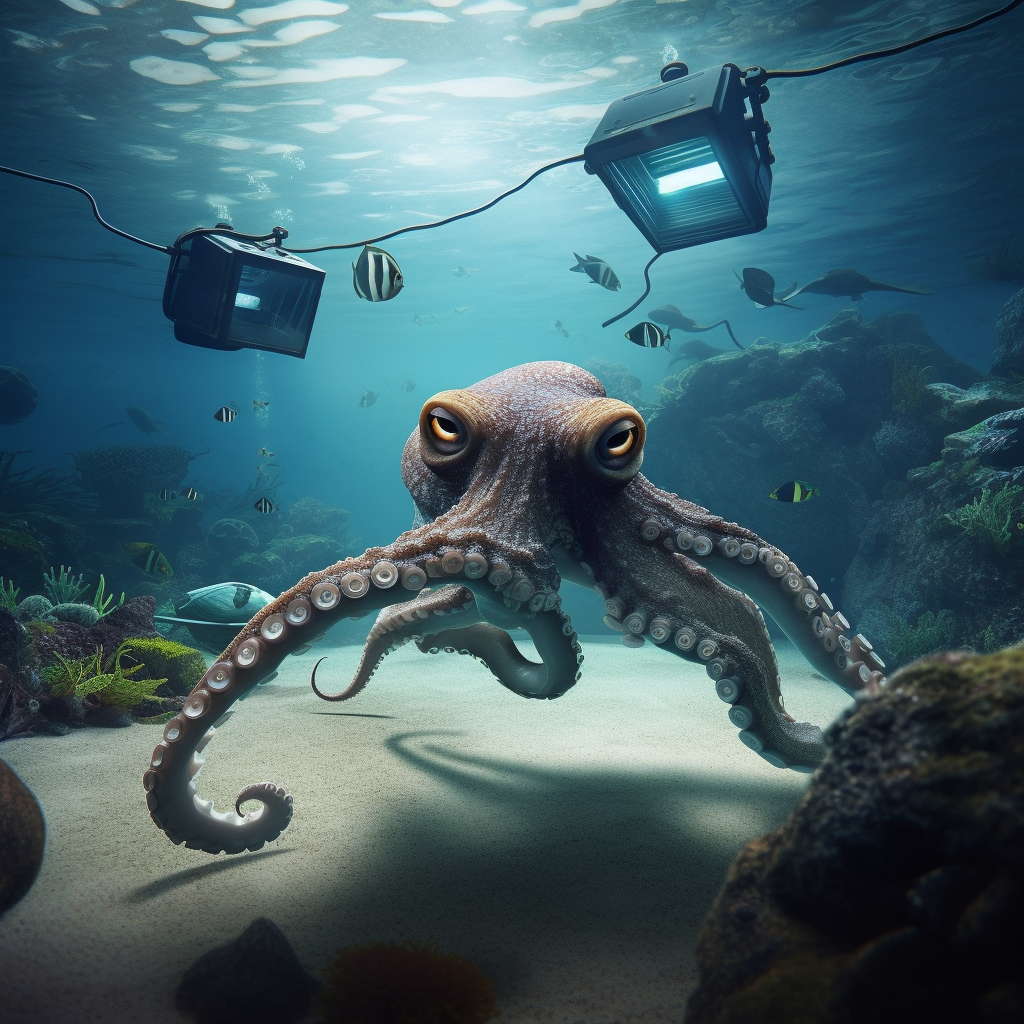
Octopuses are fascinating creatures that have captivated the imaginations of scientists and nature enthusiasts alike. With their unique intelligence and problem-solving abilities, many people wonder if it’s possible to train an octopus. In this section, we will explore the challenges of taming an octopus, the rewards of building a bond with these incredible creatures, and help you evaluate whether taming an octopus is the right choice for you.
A. The Challenges of Taming an Octopus
Training an octopus is no easy feat. These cephalopods are highly intelligent and have a complex set of behaviors and instincts. Here are some of the challenges you may encounter when attempting to tame an octopus:
-
Octopus Intelligence: Octopuses are known for their exceptional problem-solving skills and cognitive abilities. This means they can quickly learn and adapt to new situations, but it also means they can become easily bored or frustrated if not provided with enough mental stimulation.
-
Marine Animal Training: Training marine animals, in general, can be challenging due to the unique environment they inhabit. Octopuses live underwater, which presents additional difficulties when it comes to communication and training techniques.
-
Octopus Behavior Modification: Octopuses have their own set of natural behaviors and instincts that may not align with the behaviors we want to train them. It can take time and patience to modify their behavior and teach them new tasks.
-
Octopus Communication: Octopuses communicate through a combination of visual displays, body movements, and color changes. Understanding and interpreting their communication cues can be a complex task, requiring careful observation and study.
B. The Rewards: The Unique Bond Between Human and Octopus
Despite the challenges, the rewards of taming an octopus can be incredibly fulfilling. Building a bond with these intelligent creatures can lead to a unique and enriching experience. Here are some of the rewards you can expect:
-
Octopus Interaction: Octopuses are curious and interactive animals. When you establish a bond with an octopus, they can become playful and engage in interactive behaviors with you. This can include touching, exploring, and even playing games.
-
Octopus Learning Capabilities: Octopuses have a remarkable ability to learn and remember. By training an octopus, you can witness their impressive cognitive abilities firsthand. Teaching them tricks and tasks can be a rewarding experience as you watch them master new skills.
-
Octopus Enrichment Activities: Training an octopus provides mental stimulation and enrichment for the animal. By engaging their minds and challenging them with new tasks, you can help keep them mentally sharp and prevent boredom.
-
Marine Life Education: Taming an octopus can also serve as an educational opportunity. By sharing your experiences with others, you can help raise awareness about the intelligence and unique behaviors of these fascinating creatures.
C. Evaluating the Effort: Is Taming an Octopus Right for You?
Before embarking on the journey of taming an octopus, it’s important to evaluate whether it is the right choice for you. Consider the following factors:
-
Time and Commitment: Training an octopus requires a significant investment of time and effort. Octopuses need regular interaction, mental stimulation, and training sessions. Ensure you have the time and commitment to dedicate to this endeavor.
-
Space and Resources: Octopuses require a suitable environment to thrive. They need a spacious tank with appropriate water conditions, hiding spots, and enrichment tools. Make sure you have the necessary resources to provide a suitable habitat for your octopus.
-
Legal and Ethical Considerations: Check local regulations and ethical guidelines regarding keeping octopuses as pets or for training purposes. Ensure that you are obtaining an octopus from a reputable source and that you are providing them with the care they need.
-
Personal Interest and Passion: Taming an octopus requires a genuine interest and passion for these creatures. If you are genuinely fascinated by octopuses and are committed to their well-being, the effort involved in training them can be incredibly rewarding.
In conclusion, taming an octopus is a challenging yet rewarding endeavor. It requires patience, dedication, and a deep understanding of these intelligent creatures. By overcoming the challenges and building a bond with an octopus, you can experience a unique and enriching relationship with one of nature’s most fascinating creatures.
Advanced Training: How to Take Your Octopus Training to the Next Level
Congratulations on successfully training your octopus using the basic techniques! Now it’s time to take your training to the next level and explore advanced training techniques, monitor progress effectively, and troubleshoot any challenges that may arise. Let’s dive in!
A. Advanced Training Techniques: Beyond the Basics
Once your octopus has mastered the basic training commands, you can introduce more complex tasks and behaviors. Here are some advanced training techniques to consider:
-
Target Training: Teach your octopus to touch a specific target with its tentacle. Start by presenting a target, such as a colored ball, and reward your octopus when it touches the target. Gradually increase the distance and complexity of the targets to challenge your octopus’s cognitive abilities.
-
Problem-Solving Tasks: Engage your octopus’s problem-solving skills by presenting puzzles or toys that require manipulation. For example, you can place food inside a jar and encourage your octopus to figure out how to open it. This type of training stimulates their natural curiosity and encourages mental stimulation.
-
Imitation Training: Octopuses are known for their ability to mimic the behavior of other animals. Use this natural talent to your advantage by teaching your octopus to imitate specific actions. For instance, you can demonstrate a behavior, such as pushing a ball, and reward your octopus when it successfully imitates the action.
-
Underwater Agility Courses: Create an underwater obstacle course using PVC pipes, hoops, and other materials. Guide your octopus through the course, rewarding it for successfully navigating each obstacle. This type of training enhances your octopus’s agility and coordination.
Remember, patience and consistency are key when implementing advanced training techniques. Each octopus is unique, so adapt the training methods to suit your octopus’s individual learning capabilities and preferences.
B. Monitoring Progress: How to Know If Your Training Is Effective
Monitoring your octopus’s progress is crucial to ensure that your training efforts are effective. Here are some ways to assess your octopus’s progress:
-
Observation: Spend time observing your octopus during training sessions. Take note of its response to commands, the speed of learning, and any improvements in behavior. Positive changes, such as quicker response times or increased accuracy, indicate progress.
-
Record Keeping: Keep a training journal to track your octopus’s progress. Note down the tasks or behaviors you’re working on, the date, and any relevant observations. This record will help you identify patterns, track improvements, and make adjustments to your training plan if necessary.
-
Quantitative Assessments: Use quantifiable measures to assess your octopus’s progress. For example, you can time how long it takes for your octopus to complete a specific task or count the number of successful repetitions. These measurements provide concrete evidence of progress over time.
-
Consultation: Seek guidance from experts or fellow octopus trainers. They can offer valuable insights and provide an objective perspective on your training methods. Sharing experiences and discussing challenges can help you refine your training techniques and troubleshoot any issues.
C. Troubleshooting: How to Address Training Challenges
Training an octopus can sometimes come with challenges. Here are some common issues you may encounter and how to address them:
-
Lack of Interest: If your octopus seems disinterested or unresponsive during training sessions, try changing the training environment or introducing new stimuli. Octopuses thrive on novelty, so providing new toys, objects, or training props can reignite their curiosity and engagement.
-
Plateauing Progress: If your octopus reaches a plateau and stops showing improvement, it may be time to modify the training approach. Introduce new tasks or increase the difficulty level gradually to keep challenging your octopus and encourage continued growth.
-
Distractions: Octopuses are highly perceptive and easily distracted. Minimize distractions during training sessions by creating a quiet and calm environment. Avoid training near high-traffic areas or when there are other animals nearby that may divert your octopus’s attention.
-
Fear or Aggression: If your octopus displays signs of fear or aggression during training, take a step back and assess the situation. It’s essential to prioritize the safety and well-being of both you and your octopus. Consult with experts or seek professional advice to address these behavioral issues effectively.
Remember, training an octopus requires patience, adaptability, and a deep understanding of their unique behaviors and capabilities. By implementing advanced training techniques, monitoring progress effectively, and troubleshooting challenges, you can continue to nurture your octopus’s learning and create a rewarding training experience for both of you. Conclusion
In conclusion, training an octopus can be a fascinating and rewarding experience. These intelligent creatures have the ability to learn and adapt to their environment, making them highly trainable. By using positive reinforcement techniques, such as food rewards and clicker training, you can teach an octopus a variety of behaviors and tricks. It is important to be patient and consistent in your training efforts, as octopuses have their own unique personalities and learning styles. Remember to always prioritize the welfare of the octopus, providing them with a stimulating and enriching environment. With time, patience, and a deep understanding of their natural behaviors, you can develop a strong bond with your octopus and witness their incredible learning abilities firsthand. So, if you’re up for the challenge, why not embark on the journey of training an octopus and unlock the amazing potential of these remarkable creatures?
Frequently Asked Questions
How can you train an octopus?
Training an octopus involves understanding their unique cognitive abilities and behaviors. Octopuses are highly intelligent creatures with problem-solving capabilities. Training typically involves a reward system, where the octopus is rewarded for completing tasks. This can be done using food or other forms of positive reinforcement. It’s important to remember that each octopus is different and what works for one may not work for another.
How to train your octopus?
Training your octopus requires patience and understanding of their behavior. Start by introducing simple tasks, such as retrieving objects. Use a reward system to encourage the desired behavior. Over time, you can introduce more complex tasks. Remember, octopuses are intelligent and curious creatures, so keep the training sessions interesting and stimulating.
How to keep an octopus as a pet?
Keeping an octopus as a pet requires a lot of preparation and care. They need a large, secure aquarium with plenty of hiding spots. The water temperature, pH, and salinity must be carefully monitored. Octopuses also need a diet of fresh seafood. It’s important to provide them with enrichment activities to keep their minds stimulated. Remember, octopuses are known to be escape artists, so ensure your aquarium is secure.
How to tame octopus in Ark?
In Ark, taming an octopus, or Tusoteuthis, involves a unique process. First, you need to weaken the octopus by attacking it. Once it’s weak, you can feed it black pearls, which is its preferred food. Be careful, as the octopus can grab and hold onto your character or creature. It’s recommended to use a strong, high-level creature to withstand the octopus’s attacks.
How to train an octopus?
Training an octopus involves using a reward system to encourage desired behaviors. Start with simple tasks, such as retrieving objects, and gradually introduce more complex tasks. Remember to keep the training sessions engaging and stimulating, as octopuses are intelligent and curious creatures.
How to tame an octopus?
Taming an octopus is a complex process that requires patience and understanding of their behavior. Start by establishing trust with the octopus through regular, gentle interaction. Over time, the octopus will become more comfortable with your presence. Remember, each octopus is unique and what works for one may not work for another.
How does octopus intelligence complicate efforts to train them?
Octopuses are highly intelligent creatures with problem-solving capabilities. This can complicate training efforts as they can quickly become bored with repetitive tasks. They are also known to be escape artists, which can make training challenging. However, their intelligence also means they can learn and adapt quickly, which can be beneficial in training.
How to stimulate an octopus in captivity?
Stimulating an octopus in captivity involves providing them with a variety of enrichment activities. This can include introducing new objects into their tank, changing the layout of their environment, or providing them with puzzles and tasks to solve. Remember, octopuses are intelligent creatures and need mental stimulation to stay healthy and happy.
What are some effective octopus training techniques?
Effective octopus training techniques involve using a reward system to encourage desired behaviors. This can include food or other forms of positive reinforcement. Start with simple tasks and gradually introduce more complex ones. Keep the training sessions engaging and stimulating to cater to the octopus’s intelligence and curiosity.
How can underwater training benefit an octopus?
Underwater training can benefit an octopus by providing mental stimulation and promoting physical activity. It can also help to establish trust between the octopus and its trainer, which can be beneficial for future interactions. Training can also help to manage the octopus’s behavior and prevent unwanted behaviors.

